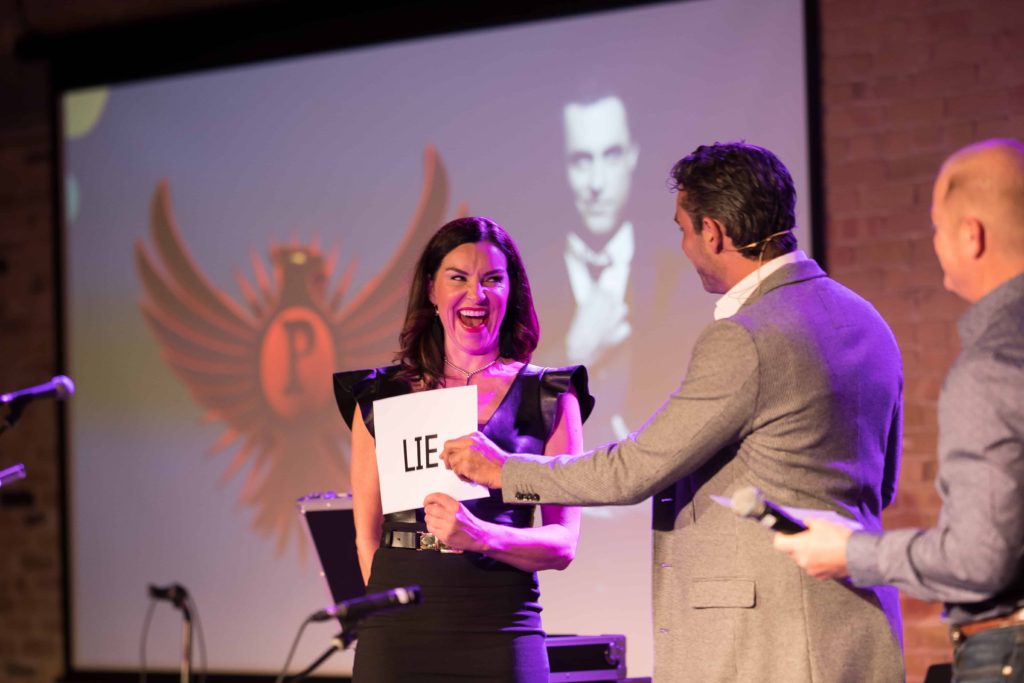Phoenix Mentalist
Liar, Liar! The Telltale Signs To Spot A Lie
Liar, Liar! The Telltale Signs To Spot A Lie

It’s hard to really get inside someone’s mind and try to figure out if the person standing in front of you is lying or not. We’ve come across a situation at some point where we question if the other party is telling the truth. You may be the boss trying to ask your junior’s help to complete a presentation that must be ready by the next day. Although your junior hasn’t said no, he isn’t looking that pleased when he says ’yes’ either.
Or you could be asking your child if she has seen the last slice of chocolate cake that was kept for a guest in the kitchen. Although she looks very innocent when she says that she has simply no clue who ate it up, you can’t help but wonder if your little angel is putting on a deceiving act.
Truth is, as humans we have evolved to become smarter, more intelligent, more perceiving and in a way more deceiving too. To many people, deceiving or telling lies comes so naturally that it ceases to prick the conscience anymore. In fact, on average within a ten-minute conversation, the average person tells 3 lies!
Sometimes the line between the truth and the lie can be really thin too. So, considering that most of the communication that we pass back and forth tends to be highly non-verbal in nature, here are 8 non-verbal signs to watch out for if you really want to know if the person in front of you is lying or not:
1. When asked a question a person who has just told you a lie is likely to make a sudden head movement. This could be because he or she is being caught unawares when posed with a question.
2. When a person tells a lie, the body functions change as well. Breathing becomes heavy and blood flow in the body increases which could also explain why some people turn ‘red’ when they are lying.
3. A person telling the truth tends to have a body posture that is comfortable whereas a liar may exhibit certain nervous movements which he or she is not even aware of. Shifting the weight on the legs constantly and body swaying are two such unconscious movements.
4. A liar needs to be convinced themselves that they have successfully made their story believable to another person. It is likely that liars may repeat a story again and again just to sound convincing and science shows that when liars are asked to repeat the same story after a short interval, there could be changes in the narration or new ‘facts’ may also be added.
5. Liars tend to suddenly have a dry throat or may end up licking their lips a lot too.
6. It’s only natural to face a person when talking. Many people believe that people who tell lies choose not to look at the faces of the person in front of them. This can be true when they are telling lies to a person who is well known to them, however, in actual fact, a liar will tend to look you dead in the eye during a lie so as to be perceived as more confident and believable.
7. On the other hand, there are also many people who prefer to look straight ahead and who don’t even blink when telling a lie. It can be tough to spot a liar if they don’t blink as usual and chooses to maintain longer eye contact that is normal when talking to someone.
8. When caught unawares, a habitual liar may even have difficulty speaking and may repeat a few words time and again.
It’s without a doubt that you have encountered somebody you know personally or professionally who has exhibited either one or more of these non-verbal signs of deception in a conversation with you. However, it’s also equally tough to keep track of such gestures mentally, in the space of a few seconds or minutes into the conversation.
That’s why Phoenix is here to help you master the art of understanding body language and identifying such lies and deceptions as and when they occur. Television’s most famous mentalist has successfully held various corporate training workshops for many well-known organisations all across Australia and the feedback from clients has been amazing!
Being able to understand the subtle non-verbal signs and then act accordingly can help you in so many situations- in your relationships, as a parent, as an employee, as a boss or even with your clients. By reading the body language of a person you’re having a conversation with, you’ll be in a better position to make more accurate judgements and take the right decisions.
Get in touch with us. We’ll be happy to arrange a corporate training workshop for you irrespective of how small or big your team is. See you soon!
